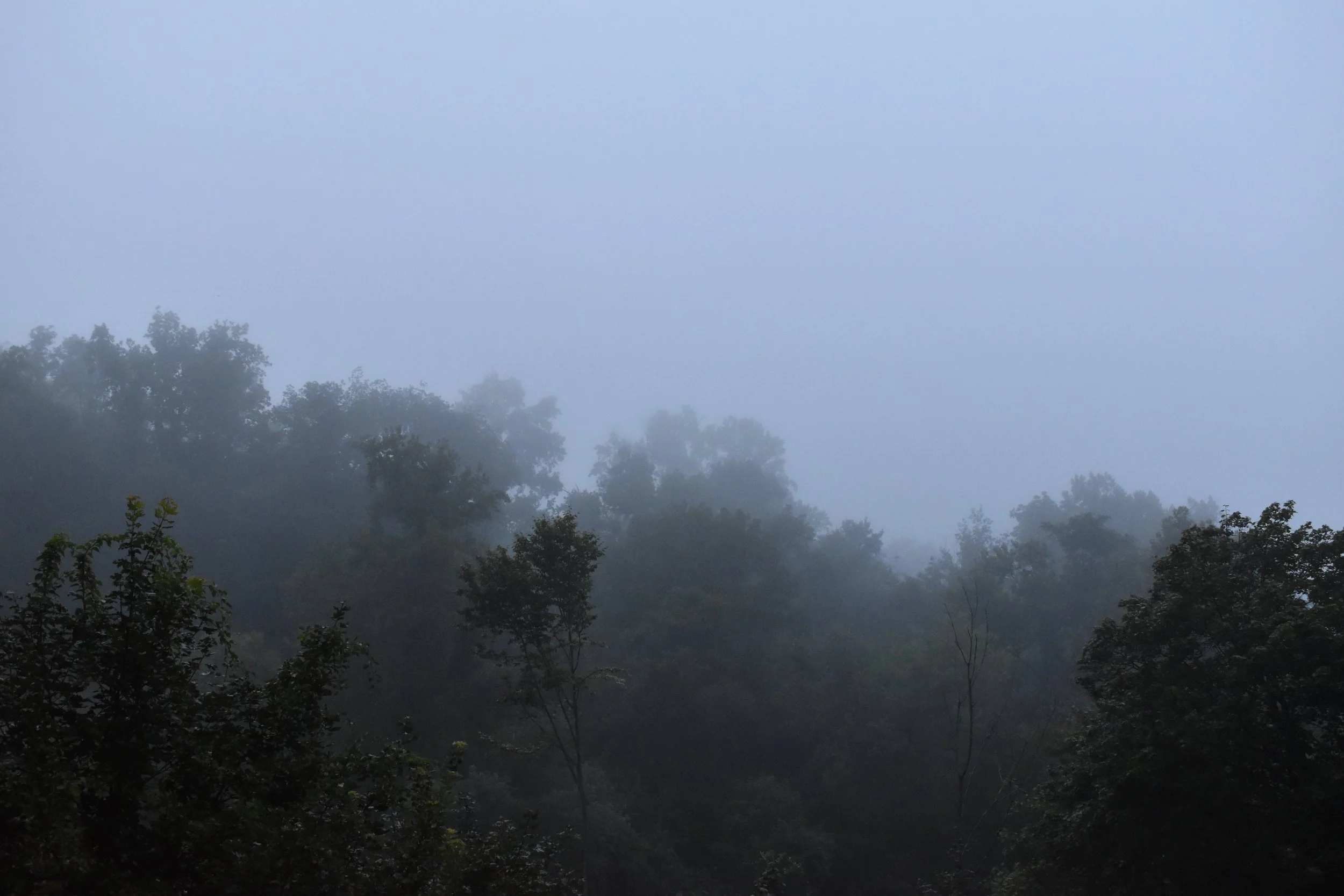Embertide
This morning was hazy with a high humidity that was barely distinguishable from the fine rain drops. The pungent smell rain wetting the bone-dryness of the earth lingers. If it were a little foggier, it would remind me of a day I spent working in an orchard after the summer ‘help’ had gone back to school. Sighing with relief, it was finally possible to get something done. The day’s work was peel the horticultural tape off of young apple trees which had been grafted and remove any dead scions. It was a slow dreamy kind of day that remained dark and hazy, cool and rainy. One can really loose track of time.
In returning to this memory, the scripture came to mind: I am the vine; you are the branches. Whoever abides in me, and I in him, bears much fruit. For without me, you are able to do nothing. If anyone does not abide in me, he will be cast away, like a branch, and he will wither, and they will gather him and cast him into the fire and he burns. (John 15: 5 – 6)
There are many pastoral and agricultural references in scripture, partly because these realities were the substance of most people’s lives, but more so, I think, because they are timeless, transcendent in the way that, as long as man lives on earth, he has a body, and so long as he has a body, he is dependent on the world around him. It is easy to forget in a world – at least in most of the “first world” – which is so urbanized, technological, and mechanical how radically dependent we are on the earth. It seems our collective hubris has created an artificial landscape which is held up by a single, fragile, thread of technology and global communication, and if -- God forbid! -- this delicate thread is severed, even if only for a while, we will come quickly to a new appreciation of how helpless we truly are without the providence of God through means of good soil, sunlight, clean water, viable seeds, and robust animal stock.
God sees what we do in charity for Him, charity to our neighbor, love of our enemy, and the care we give to ourselves and to the world which we have been given to steward. What we do privately, our own devotion, no matter how small, is seen and cherished by God who delights in us, but how much more efficacious is it when, through obedience to Him in His Church, we, as the body of Christ petition him in unison? The Church has offered us many opportunities to do this during the penitential seasons of Advent and Lent, some observe another fast during Michaelmas. As I mentioned before, for Carmel, the period between The Exaltation of the Cross and Easter of the following year is marked by a fast. There are liturgical prayers – the Mass – but also the Liturgy of the Hours which is the official prayer of the Universal Church. These are all opportunities that the faithful have to fulfill a kind of obedience, to receive and participate what we call tradition.
In Romans 11 we read: And if some of the branches are broken, and if you being a wild olive branch, are grafted on to them, and you become a partaker of the root and of the fatness of the olive tree, do not glorify yourself above the branches. For though you glory, you do not support the root, but the root supports you.
The Church has invited all of the faithful to participate in another rich tradition marking the change of the seasons by participating in three days: Wednesday, Friday, and Saturday, of fasting, abstinence, and prayer of thanksgiving and petition to God for His many gifts and to appeal to His abundant mercy. These Ember Days or Quatuor Tempora, have fallen largely out of use, and are no longer obligatory, but the faithful are still invited to participate in this small gift of self.
The Michaelmas or Autumn Embertide is traditionally seen as a time to give thanks for the abundant harvest of grapes that ripen on the vines at this time of year and will be pressed into the wine offered on the altar.
Each season of Embertide can be seen as a period of thanksgiving for a good that has been offered to God – Spring for bees, their labor which provides us candles for the liturgy, and sweetness during our feasts. Summer for the wheat which ripens and is threshed and milled into the flour and made into altar bread, autumn for grapes, and winter for the olives that will be pressed into the oils used to anoint the sick, the newly baptized, and the hands of a priest during his ordination.
Everything has a season, and this is particularly true of these fruits of the earth which any gardener or farmer watches carefully for signs of pests and disease but also for ripeness. Our communications, networking, and transport have allowed us the luxury of ‘picking’ fruit for the market year round – we even have peaches at Christmas time. This has perhaps numbed us to any sense of urgency that befalls those who work the land.
It is often said that patience is a virtue, and the farmer is no stranger to patience as he plants and cares for a young vine and waits, sometimes years, for it to bear any signs of producing fruit. But when that patience is rewarded with a ripening harvest, he is called from a sort of dormancy, of waiting, into the field, and if the fruit is not harvested as it ripens, the bounty will be lost. Certainly we can also read this story of ripening fruit as a call from God – and when He calls, we would be fools to delay our answer.

